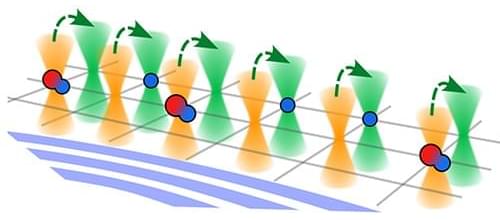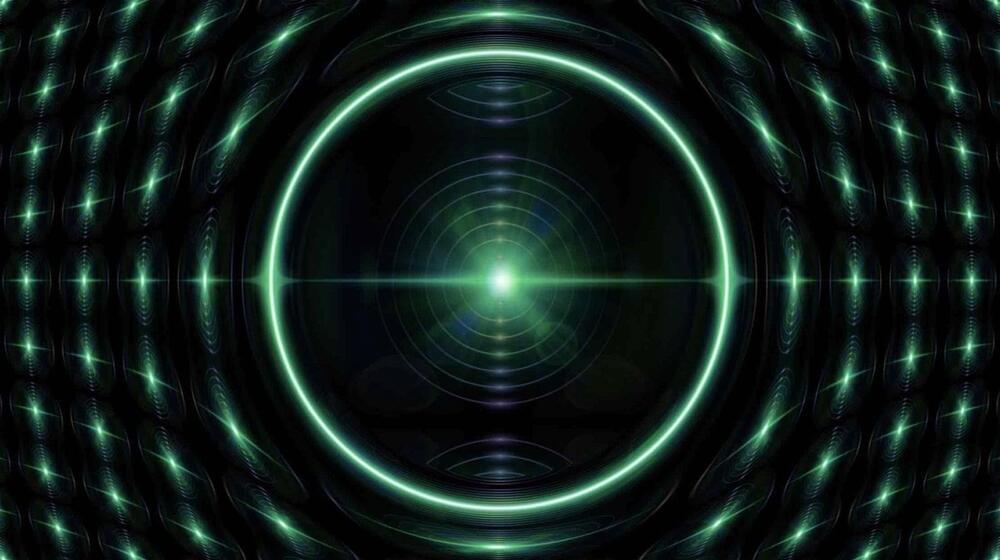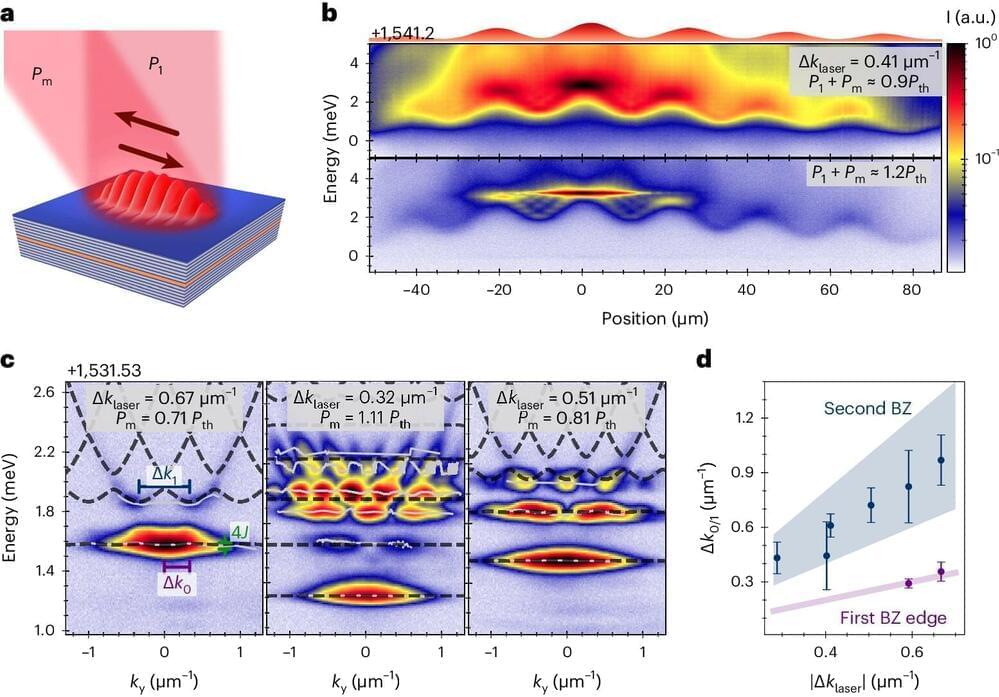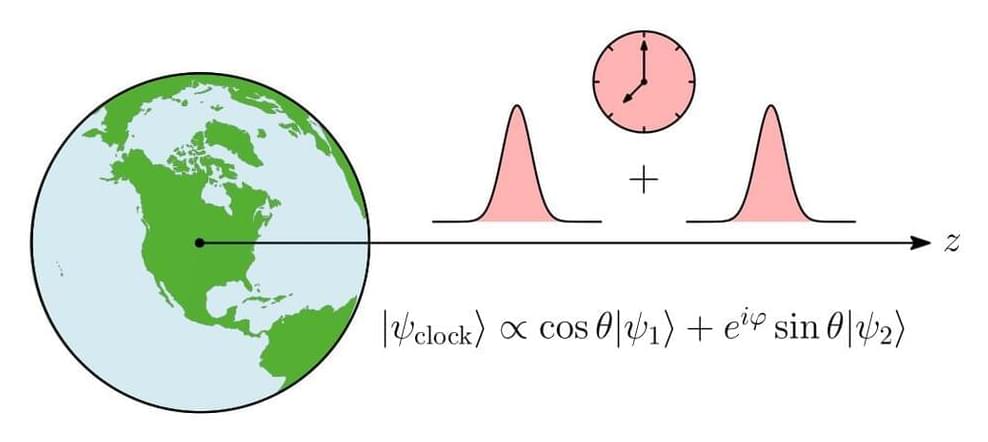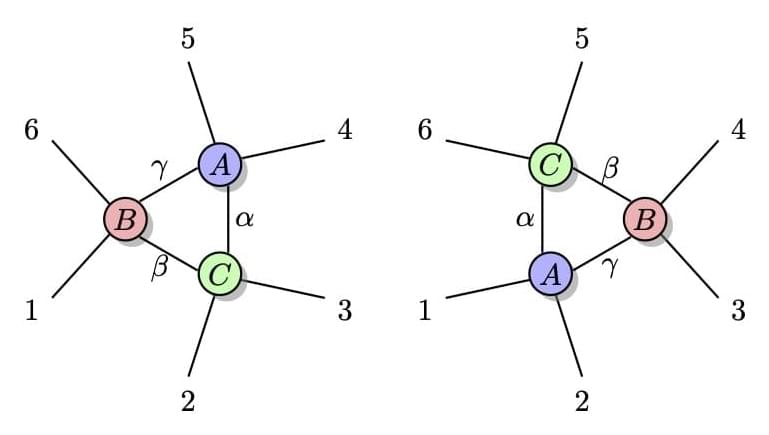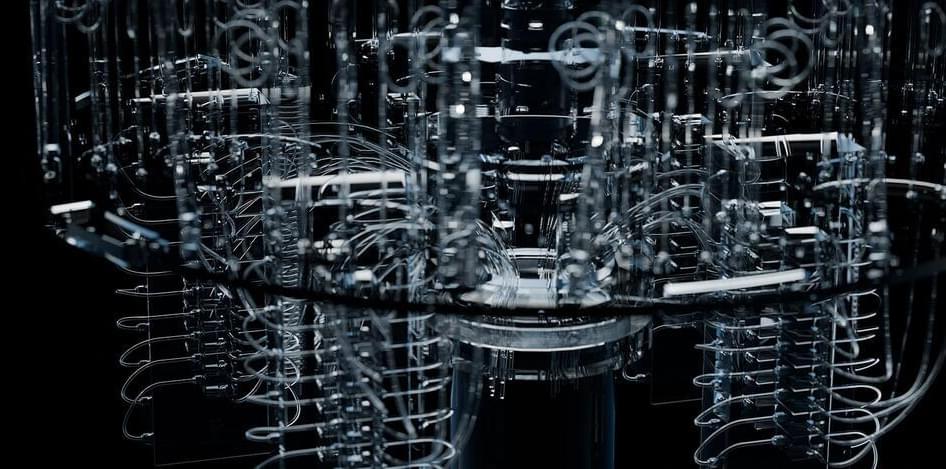It’s one thing to dream up a quantum internet that could send hacker-proof information around the world via photons superimposed in different quantum states. It’s quite another to physically show it’s possible.
Category: quantum physics – Page 212
In its superconducting state, an exotic metal harbors charge carriers that appear to have 4 and 6 times the charge of a single electron, suggesting the formation of Cooper-pair “molecules.”
A kagome crystal features two-dimensional atomic layers whose structure resembles a traditional Japanese basket weave called kagome. For several decades, the kagome crystals that attracted the most attention were insulating magnets. The geometric frustration inherent in their kagome structure could, it was hoped, engender a much-sought exotic state known as a quantum spin liquid. By contrast, the metallic side of the kagome family was more of a theoretical curiosity. That status changed in 2019 with the discovery of exotic electronic behavior—Dirac fermions and flat bands—in the kagome metal FeSn [1]. A bigger surprise followed a year later when superconductivity was observed in the kagome metal cesium vanadium antimonide (CsV3Sb5, or CVS for short) [2].
The ability to store molecules in reconfigurable optical traps could allow researchers to harness the rich physics of molecules in quantum applications.
DARPA is funding the development of a military-grade quantum laser prototype that can penetrate dense fog and operate over long distances.
An “optical conveyor belt” that can move polaritons—a type of light-matter hybrid particle—in semiconductor-based microcavities.
This asymmetric response of the confined polaritons breaks time-reversal symmetry, driving non-reciprocity and the formation of a topological band structure.
Photonic states with topological properties can be used in advanced opto-electronic devices where topology might greatly improve the performance of optical devices, circuits, and networks, such as by reducing noise and lasing threshold powers, and dissipationless optical waveguiding.
Further, the simplicity and robustness of our technique opens new opportunities for the development of topological photonic devices with applications in quantum metrology and quantum information, concludes Fraser.
Using a clever laser technique, scientists have squished pairs of atoms closer together than ever before, revealing some truly mind-boggling quantum effects.
Could we be getting close to quantum teleportation? Eat your hearts out sci-fi fans because this could actually happen.
Jerzy Paczos, Kacper Dębski, Piotr T. Grochowski, Alexander R. H. Smith, and Andrzej Dragan, Quantum 8, 1338 (2024). According to relativity, the reading of an ideal clock is interpreted as the elapsed proper time along its classical trajectory through spacetime. In contrast, quantum theory allows the association of many simultaneous trajectories with a single quantum clock, each weighted appropriately. Here, we investigate how the superposition principle affects the gravitational time dilation observed by a simple clock – a decaying two-level atom. Placing such an atom in a superposition of positions enables us to analyze a quantum contribution to a classical time dilation manifest in spontaneous emission. In particular, we show that the emission rate of an atom prepared in a coherent superposition of separated wave packets in a gravitational field is different from the emission rate of an atom in a classical mixture of these packets, which gives rise to a quantum gravitational time dilation effect. We demonstrate that this nonclassical effect also manifests in a fractional frequency shift of the internal energy of the atom that is within the resolution of current atomic clocks. In addition, we show the effect of spatial coherence on the atom’s emission spectrum.
Balázs Pozsgay and Ian M. Wanless, Quantum 8, 1339 (2024). Absolutely maximally entangled (AME) states of $k$ qudits (also known as perfect tensors) are quantum states that have maximal entanglement for all possible bipartitions of the sites/parties. We consider the problem of whether such states can be decomposed into a tensor network with a small number of tensors, such that all physical and all auxiliary spaces have the same dimension $D$. We find that certain AME states with $k=6$ can be decomposed into a network with only three 4-leg tensors; we provide concrete solutions for local dimension $D=5$ and higher. Our result implies that certain AME states with six parties can be created with only three two-site unitaries from a product state of three Bell pairs, or equivalently, with six two-site unitaries acting on a product state on six qudits. We also consider the problem for $k=8$, where we find similar tensor network decompositions with six 4-leg tensors.
NVIDIA today announced that it will accelerate quantum computing efforts at national supercomputing centers around the world with the open-source NVIDIA CUDA-Q™ platform.


